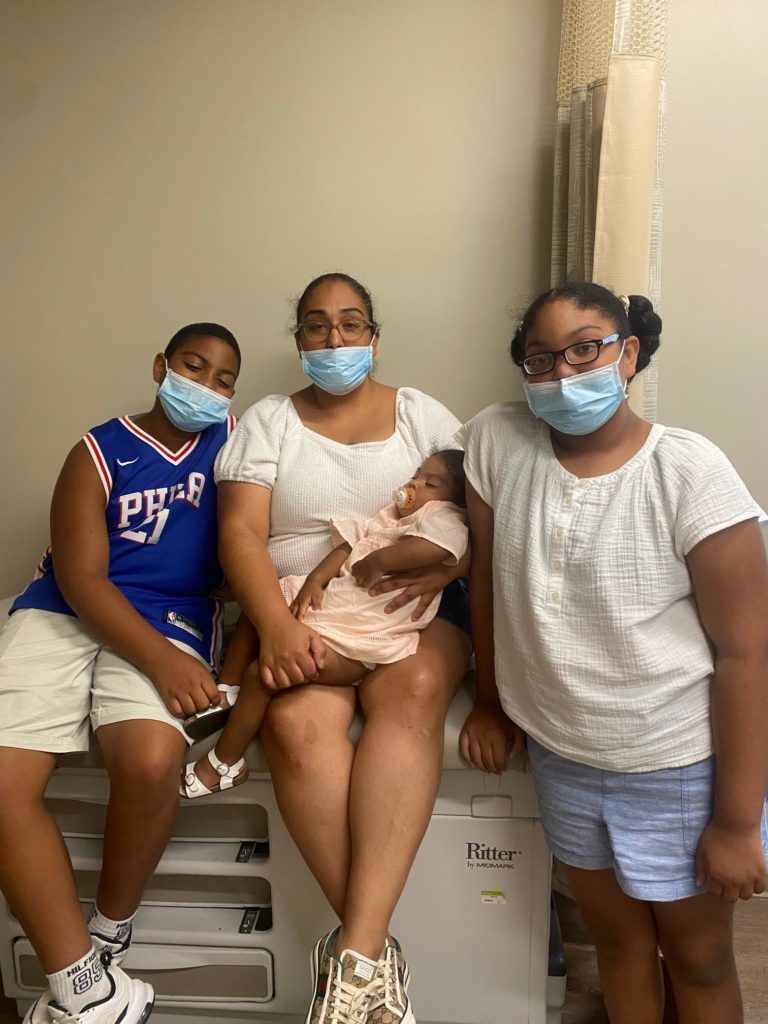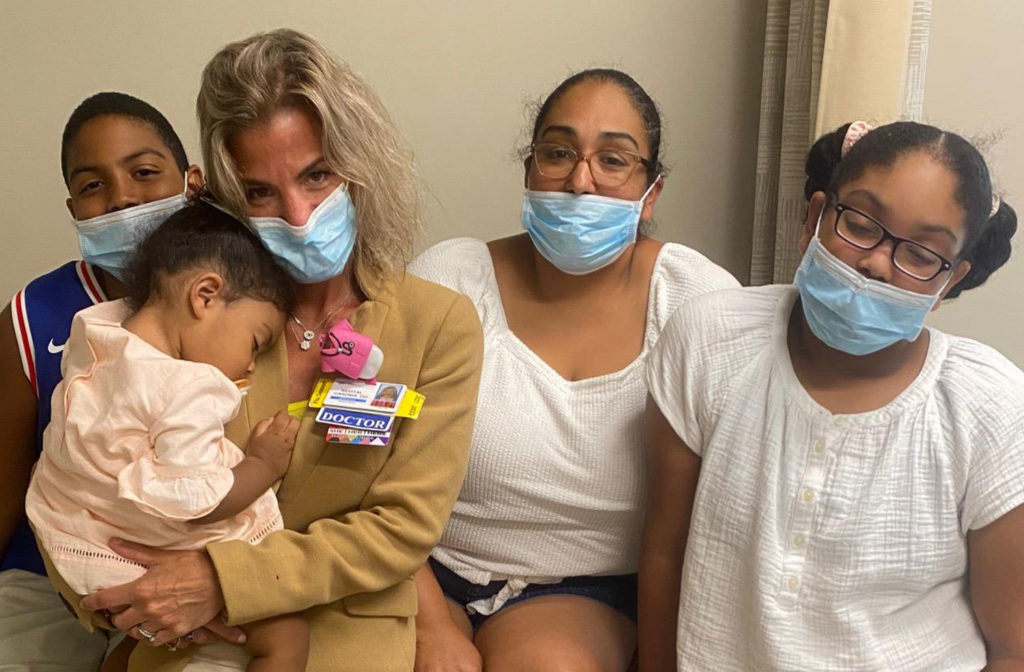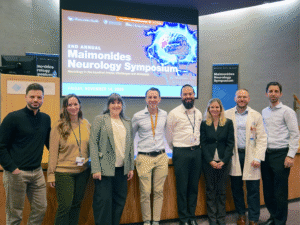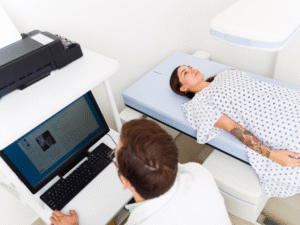Collaboration isn’t just a buzzword—at Maimonides Health, it’s the very thing that can save lives.
It was instrumental late one Friday night when Wyckoff Heights Medical Center contacted Maimonides Health. Their patient, Charlotte, a 9-month-old baby, was experiencing high fever, showed inflammation markers in her blood, and refused to put weight on her leg.
Wyckoff doctors were concerned that she had an infection in her hip joint, but they didn’t have a pediatric anesthesiologist available to safely perform an MRI under sedation.
That night, Wyckoff connected with Revital Caronia, DO, a Maimonides pediatrician on-call at the hospital.
Dr. Caronia knew that getting the MRI done right away was imperative for the child’s health. She arranged to transfer the infant to Maimonides and sprang into action to set up a pediatric MRI. It was no easy task; she had to find an orthopedic surgeon and pediatric anesthesiologist, to start.
“It took a lot of phone calls and a lot of people willing to come in and do what they had to do for this child,” Dr. Caronia said.
After performing the procedure, doctors determined there was no infection in the baby’s hip. She was diagnosed with a viral infection and ear infection, which Dr. Caronia treated right away. But she still wondered why the child had inflammation in her joint.
The Importance of Following Hunches—and Follow-Up Care
 She sent the child home with her family. But she asked Charlotte’s mother, Christina Lopez, to come back in a few days so she could follow up with the baby.
She sent the child home with her family. But she asked Charlotte’s mother, Christina Lopez, to come back in a few days so she could follow up with the baby.
When Charlotte came in a few days later, she had a fever and was limping.
“I looked at her [Lopez] and I said, ‘OK, I don’t know what this is, but I want to make sure it’s not Kawasaki disease,’” Dr. Caronia recalled.
Dr. Caronia didn’t want to send the baby to the ER, so she contacted the pediatric cardiology team and got the family in touch with Daniela Rafii, MD. Dr. Caronia knew that if Charlotte’s coronary arteries were dilated, it was a sign of Kawasaki disease, an autoimmune reaction that doctors believe can be be virally triggered.
“We’re not sure why kids get it. We think that it’s a virus that triggers the immune system,” she noted.
Charlotte underwent an echocardiogram, which confirmed Dr. Caronia’s suspicions. The procedure revealed dilation in her arteries.
Right away, the baby was sent back to the hospital, where she was given intravenous immunoglobulin (IVIG). The treatment lowers inflammation and prevents coronary artery damage. Once she was treated, she got better. She later went home on aspirin to prevent any clotting—a standard procedure, Dr. Caronia pointed out.
After follow-ups with the Maimonides pediatric cardiology team at two and six weeks after treatment, Charlotte was completely better. At that point, Lopez became a Maimonides patient for good.
“I thank God that I found this hospital,” Lopez said in a subsequent testimonial.
Lopez grew to trust the Maimonides team after correctly diagnosing Charlotte’s condition. And that couldn’t have happened without a team of doctors working together to prioritize care—and get an accurate diagnosis.
“When you trust someone it’s easier to take their recommendations, but you have to earn that trust,” Dr. Caronia said.
For Dr. Caronia, the experience confirms why she became a doctor.
“I’m humbled every day that people trust me with their kids’ lives,” admitted Dr. Caronia.
Extending Care by Earning Trust
Not only did Caronia see Charlotte through all her follow-up visits—Lopez decided to bring her older children to Dr. Caronia for checkups.
When Dr. Caronia ran laboratory work on Charlotte’s siblings, Dr. Caronia discovered the children were prediabetic. Dr. Caronia worked with the family to implement diet and lifestyle modifications.
“We talked all about getting healthy as a family,” Dr. Caronia recalled.
In just a few months, the older siblings returned for a follow-up visit. Both lost weight and lowered their body mass index (BMI), and they no longer have acanthosis on their necks, which can indicate diabetes.
“They look like they’re getting healthier as a family,” Dr. Caronia was pleased to report. “Getting her family healthy is just a bonus for me.”
Dr. Caronia credits Lopez with following up, whether it was for the baby or her older children.
“She was persistent and had trust in Maimonides,” Dr. Caronia said. “She’s forever grateful to Maimonides and everything we did.”
It Takes a Team
The whole process of treating Charlotte, and then her older siblings, was a “collaborative effort,” Dr. Caronia said.
“We put our best foot forward for Charlotte,” Dr. Caronia said. “I couldn’t do it alone. There were so many people along the way that put her needs first.”
Dr. Caronia now has a personal relationship with Lopez, who shares photos of the children with their doctor frequently.




